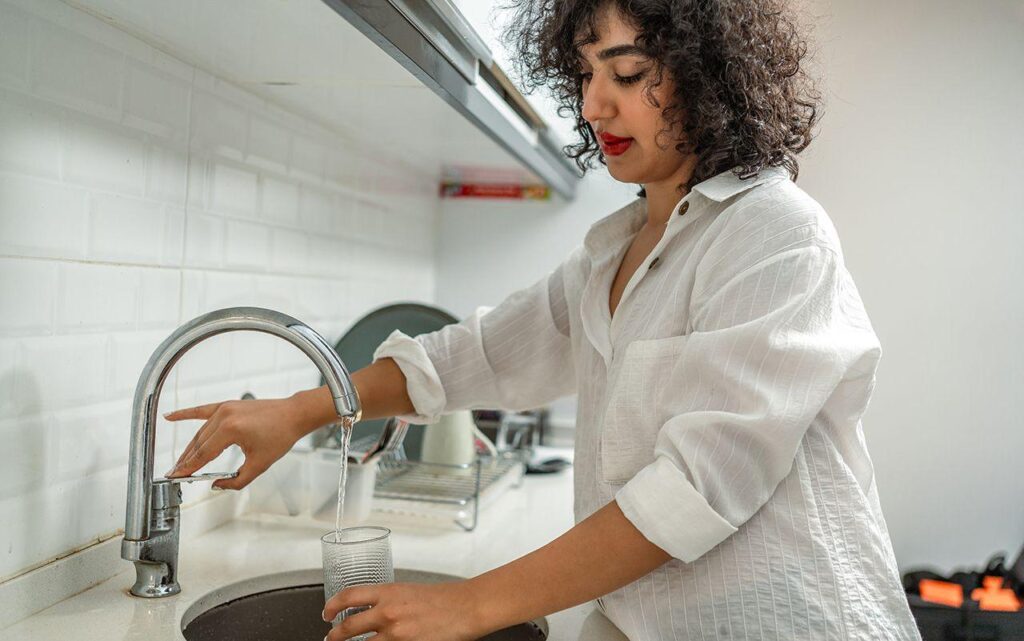How to Reduce Your Water Bill with Smart Plumbing
Water is one of the most essential resources in our lives, and with the increasing costs of utilities, it’s important to find ways to reduce consumption without sacrificing comfort. One of the most effective ways to achieve this is by utilizing smart plumbing solutions. Plumbing has evolved beyond the basic pipes and faucets we often think of when we consider water use. Today, there are a variety of modern systems and gadgets designed to help you save water and reduce your water bill. In this blog post, we will explore some of the most effective ways you can use smart plumbing technologies to cut your water usage and lower your utility bills.
- Install Low-Flow Fixtures
 One of the simplest ways to reduce water usage is by installing low-flow fixtures. These include low-flow toilets, showerheads, and faucets. Low-flow toilets use significantly less water per flush compared to traditional models, and they have become a standard in many new homes. Low-flow showerheads and faucets use less water without compromising water pressure, so you can still enjoy a satisfying shower or wash your hands without wasting gallons of water.
One of the simplest ways to reduce water usage is by installing low-flow fixtures. These include low-flow toilets, showerheads, and faucets. Low-flow toilets use significantly less water per flush compared to traditional models, and they have become a standard in many new homes. Low-flow showerheads and faucets use less water without compromising water pressure, so you can still enjoy a satisfying shower or wash your hands without wasting gallons of water.
When upgrading your plumbing fixtures, be sure to look for products with the WaterSense label. WaterSense-certified products are proven to meet strict water-efficiency guidelines set by the Environmental Protection Agency (EPA), ensuring that your new fixtures help you conserve water effectively.
- Invest in a Smart Irrigation System
If you have a garden or lawn, you likely use irrigation to keep your plants healthy. Traditional irrigation systems are often inefficient and can waste a lot of water. Smart irrigation systems, on the other hand, use sensors and weather data to adjust watering schedules based on factors such as soil moisture, temperature, and rainfall. This helps ensure that your plants are getting the right amount of water without overwatering them.
Smart irrigation systems can be controlled remotely through a smartphone app, allowing you to adjust settings based on your needs. Some systems even allow for automatic adjustments, so you don’t have to worry about forgetting to turn off the sprinklers on a rainy day. By reducing the amount of water you use for irrigation, you can significantly cut your water bill.
- Monitor Water Usage with Smart Meters
A smart water meter is a high-tech device that tracks your water usage in real-time. These meters send data to a central system, allowing you to monitor your consumption and detect any anomalies. For example, if your meter detects unusually high water usage, it can alert you to potential leaks or inefficiencies in your plumbing system.
With smart meters, you can easily identify patterns in your water usage and make adjustments as needed. Many smart water meters come with mobile apps that allow you to set alerts for when your water usage exceeds a certain threshold. By staying on top of your water consumption, you can make informed decisions to reduce your water usage and avoid unnecessary expenses.
- Detect Leaks Early
Water leaks are one of the most common causes of high water bills. A small, undetected leak can waste hundreds of gallons of water without you even realizing it. Fortunately, there are now smart leak detection systems that can help you catch leaks early, before they turn into costly problems.
Smart leak detectors are installed at various points in your plumbing system, such as under sinks, behind toilets, or near water heaters. These devices use sensors to detect any changes in moisture or flow, and they can send alerts to your smartphone if a leak is detected. By fixing leaks as soon as they are identified, you can prevent water waste and avoid expensive repairs down the line.
- Upgrade Your Water Heater with a Smart System
Your water heater is another major contributor to your water bill. Traditional water heaters constantly heat and store water, even when it’s not being used, which can lead to energy waste. Smart water heaters, on the other hand, are designed to be more efficient. These systems allow you to set schedules for when hot water is needed, ensuring that the heater only operates when it’s required.
Some smart water heaters also come with built-in sensors that monitor water usage and adjust heating patterns accordingly. For example, if you typically use hot water at a specific time of day, the smart water heater will heat the water in advance so that it’s ready when you need it. This reduces the amount of energy and water wasted by constantly reheating water.
- Use a Greywater Recycling System
Another innovative smart plumbing solution to reduce your water bill is a greywater recycling system. Greywater is the relatively clean wastewater generated from activities like washing dishes, showering, and doing laundry. Rather than sending this water directly to the drain, a greywater recycling system collects it and filters it for reuse in non-potable applications, such as flushing toilets or watering the garden.
Installing a greywater recycling system can drastically reduce the amount of freshwater you need to use, cutting down on both your water and sewage bills. These systems are particularly useful in areas where water is scarce or expensive.

- Schedule Regular Plumbing Inspections
While smart plumbing solutions can certainly help reduce water consumption, regular plumbing inspections are still essential. Over time, your plumbing system can develop issues like clogged pipes, worn-out seals, or corroded fixtures, which can lead to water waste. By scheduling regular inspections with a professional plumber, you can catch any problems before they become costly and ensure that your plumbing is operating efficiently.
Smart plumbing technologies offer a wide range of benefits, from reducing water consumption to lowering your water bill. By upgrading to low-flow fixtures, investing in smart irrigation systems, installing smart water meters, detecting leaks early, and using energy-efficient water heaters, you can significantly reduce your water usage and enjoy lower utility bills. Additionally, integrating a greywater recycling system into your home can further minimize your reliance on freshwater, making your home more sustainable. With these smart plumbing solutions, you’ll not only save money but also contribute to a more sustainable future.